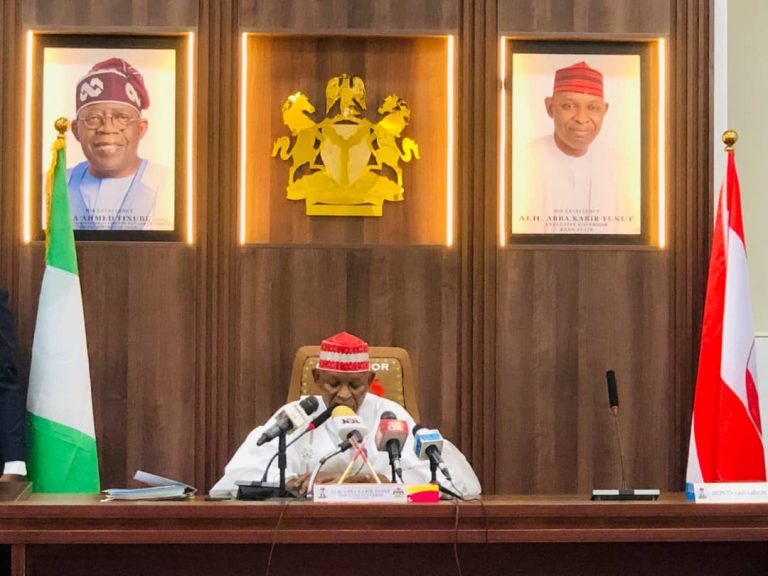By Oke Peter
The hope of Nigerians getting constant electricity supply may not become reality sooner, due to three major reasons. These issues are systemic and fundamental and it seems it has defied workable solution. First is the regulatory hitch, the supervisory organ in charge of the country’s power sector, Nigerian Electricity Regulatory (NERC) has not been effective in regulating the activities of the so-called investors, owners of Distribution Companies (Discos).
Discos are not acting in accordance with the commission’s extant regulations. There is no remarkable feat in electricity supply apparently due to administrative bottleneck and political expediency. For instance, the tariff consumers are paying currently is far below what is expected of Discos on the NERC’s rules.
The ministry in charge of the upgrade of transmission infrastructure may be for opinionated reasons, has refused to acknowledge the level of electricity problem in Nigeria. The ministry frequently claims that the major problem is with technology.
However, the Transmission Company of Nigeria (TCN), who is saddled with the responsibility of transmitting energy from the grid to power stations across the country, is battling with lack of funding from government and obsolete equipments.
According to the Executive Secretary, Association of Power Generation Companies (APGC), Mr Joy Ogaji, he disclosed that the Generation Companies (Gencos) has the capacity to generate 12,000 megawatt of power to reduce the electricity need of Nigerians. “Currently, Gencos have available 8,000 megawatt capacity, given the readiness of the TCN and Discos network to absorb the power generated. “Gencos have an installed capacity of 12,500 mw, but the TCN only has maximum capacity of 5,500, but we believe they cannot take more than 4, 500 megawatts. A system stress test was conducted on the distribution lines show that discos can only take 4,600 mw.
With present reality, Discos does not have the capacity to carry enough energy that can solve electricity problem in Nigeria,” he said. Secondly, lack of financial support is affecting electricity supply. The Discos obtain tariffs from which they are anticipated to pay the TCN, the Gencos, the regulator and every individual on the electricity value chain. Consumers are finding it difficult to pay for electricity used.
The Discos are not generating sufficient funds to settle the invoices submitted by the TCN and the Nigeria Bulk Electricity (NBET) and this has resulted in huge debts for the organisation. The deliberate cases of trade regulator which is the gasoline provide to energy plants and the producing capability of present plants, high quality of the transmission community occasioning losses, electricity theft, and vandalism amongst others are the major cause. Some government ministries, departments and agencies who do not to pay for electricity are also contributing to the pervasive darkness in the country.
Also, selling firm, NBET, has retained management of the transmission section. NBET buys electricity in bulk from the Gencos and transport to the Discos by means of TCN which manages the nationwide grid and affiliated property like substations and transmission stations. Due to a drift in observing the requirements laid down by the legislation than finishing up a lot-rated tariff increment, a Federal High Court recently ordered NERC to reverse the increment, a choice that was hailed by Nigerians without considering its consequence.
The political class has also rejected the proposed tariffs until stable electricity is achieved without considering the stake of investors, who are also not making the projected profits from the investment. Over time, there have been complains by Gencos of shortfalls arising from the price of getting gasoline and declining returns from Discos that are confronted by the problem of unpaid payments, energy theft and bypass by the consumers. For some time, militancy and vandalism of pipelines have also interrupted the operations of facility plants. Interestingly, President Muhammadu Buhari-led administration has been able to calm youth restiveness in the Niger Delta region and there have been improvements in energy generation.
Also, Minister of Power and Works, Mr Babatunde Fashola confirmed that the Federal Executive Council has approved the sum of N701 billion as Energy Assurance Assure (PAG), the fund will be used in paying for migration of electricity generated by the Gencos to send to TCN and Discos. There have been doubts as to the precise nature of this grant, whether is to be paid out as grant, subsidy or loans.
However, there challenges facing nation’s grid to be utilised in evacuating energy produced. Currently, the grid cannot conveniently transport the available energy without breaking down and there have been more than 10 of such collapses between January and March 2017. However, with regulatory restrictions on licensees and additional value-reflective tariffs, it is uncertain any investor will like to invest. Using trade rule of thumb estimation that of 1,000 megawatt to 1,000,000 individuals, Nigeria must generate at least 150,000 megawatt of electricity to adequately cater for its inhabitants and meet industrial objectives.
The World financial institution and affiliate our bodies are presently consulting with the ministry of power on technical and monetary interventions for the sector. There are discussions on $1billion funding for transmission infrastructure and the process is being viewed as marketing campaign. It is expected that the ministry can be of help to Discos in obtaining metering aims to strengthen client’s confidence and statutory situations for tariff increments by the regulator.
Thirdly, unfriendly climate condition is also contributing to the electricity problem. Natural events and human activities are believed to be contributing to an increase in average global temperature. This is caused primarily by increases in greenhouse gasses such as Carbon Dioxide (CO2). Nigeria is experiencing adverse climate conditions with negative impacts on the welfare of millions of people. Alarm bells are ringing with lakes drying up and reduction on river flow in the arid and semi arid region. The result is less water supplies for use in agriculture, hydro power generation and other users. It is obvious that even minor climate deterioration can cause devastating socio economic consequences.
Policies to curb the climate change by reducing consumption of fossil fuels like oil, gas or carbon, have significant economical impacts on the producers or rather the suppliers of these fuels. Nigeria is the eighth largest oil supplier in the world and the ninth largest deposit of gas. The nation’s economy would be greatly affected by a sustainable reduction of fossil energy consumption. Nigeria is practically a monoculture, about 80 per cent of the government income, 90-95 per cent of the export earnings and more than 90 per cent of the foreign exchange revenue evolves from the oil sector.
Special attention should be paid to gas division, which emerges in the joint-production of oil. So far, gas has mainly being flared by 75 per cent due to the lack of technical facilities to make use of it. Also, there is need to review the present framework that gives investors edge to handle the distribution of electricity in order to ensure stable electricity supply for Nigerians. It is regrettable that Nigeria’s development plan does not identify the economical threat cause by climate change as well as the menace of declining oil prices, which reduces consumption of fossil fuels.
Therefore Nigerian government must come up with a clear cut policy aiming at ameliorating these problems if it is serious about providing stable electricity for the masses.
Oke Peter is the publisher of Energy Worth.
Nigeria's hopeless energy sector

A power station









